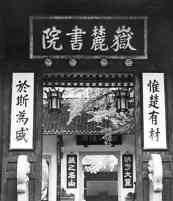China Overview
- Population: 1.3 billion
- Currency: yuan
- Guinness World Records: most people painting each other's faces simultaneously in one location (13,413), largest bottle of cooking oil (containing 3212 litres), most couples hugging (3009 couples).
- Internet users: 135 million
- Milk beer: from Inner Mongolia, an alternative to the traditional mare's-milk wine.
- Squirrel fish: whole mandarin fish deep-fried and manipulated to resemble a squirrel.
- Number of chinese characters: over 56,000
index
Brief introduction of education
A good education has always been highly valued in China, as the people believe that education ensures not only the future and development of the individual, but also the family and the country as a whole. Therefore, China has always been attaching great importance to the education system. Here we provide the general information about history and principle of Chinese education, as well as a list of the main universities in China. |
What is the brief history of Chinese education? |
In general, Chinese ancient education mainly aims on bringing up officials. As far back as the Shang Dynasty, inscriptions on bones or tortoise shells were the simple records of teaching and learning. In the Western Zhou Dynasty, nobles built schools to teach their children, as hoping their off springs would become officials of the future. Those who were from a poor family but given with great talent could but dream to approach state affairs. The development of education system led to a form of appointing talents to be officials. In general, this process can be divided into three periods - 'chaju' and 'zhengpi' in the Han Dynasty, the 'jiupin zhongzheng' system from Han to the Northern and Southern Dynasties, and the Imperial Examination which survived from the Sui Dynasty right through to the last feudal dynasty Qing Dynasty. | 
|
| Commoner architecture |
 | After that, China's education system fell into something of a state of confusion due to the changes in national government. However, with the foundation of modern China, the new order introduced a fresh approach to education and brought it into a new phase. Through long-term endeavor, the provision of educational has taken on a prosperous process. |
What are the basic principles of Chinese education? Passed down from ancient times, the maxim from the Three-Character Scripture that said 'if no proper education is given to children, their nature will go bad' has proved to be true. The great master Confucius taught us that 'it is a pleasure to learn something and to try it out at intervals'. Similarly, numerous students have been convinced that 'reading books excels all other careers'. The records tell us that Mencius' mother became an example to millions of mothers who were keen for their children to be talented. - she moved her home three times in order to choose a fine neighborhood in which Mencius could be effectively influenced. |
What are burdens on Chinese education? |
Since in ancient China, the Chinese sees education as a stepping stone to success and their children’s success. Especially only when children are under a lot of pressure then they will excel in school. There is also an unspoken code of conformity, and there is a lot of pressure to fit in, for to be singled out is the penultimate in humiliation, causing students to "lose face" in front of their peers. In addition to academics, parents also try and enroll their children in a wide variety of after-school activities to enhance their overall development. | |
Not only students but also the educational system faces heavy burdens nowadays. Chinese classrooms are typically packed with up to 50 students, and learning is often done in groups to emphasize teamwork and cooperation. Chinese schooling is also increasingly competitive, and students sit for entrance exams even at the grade school level. These excellent ones are mingled with economics, and parents work hard to ensure they can afford to send their kids to the best schools once accepted. |
What are similarities and differences between Chinese education and Western education? Higher education in China is advanced and well developed, and Chinese universities follow a degree system similar to the west, offering Bachelors, Masters and Doctoral degrees to foreign students. What is strikingly different in China is the motivation for excellence. In the West, it is easy to assume most kids work hard because they want to succeed. In China, the goal is to create productive citizens who can serve society. Thus, a child excels to benefit China, not for his or her personal wealth. |
What are influences of Confucius on Chinese education? |
While Confucius has become a rather comical figure in the West, associated with quips like "Confucius says…," this Chinese sage has had a profound impact on the values of Chinese around the world for over 2,000 years. Kong Zi also known as ‘Confucius’ has been credited as an important figure who stresses the importance of virtue and natural order in a civil society. The basic theme of Confucianism thoughts includes loyalty, filial piety, and respect for authority are the main content of Chinese education, which also help establish order and subordination in the classroom. | |
Actually, Confucius is a philosophy rather than an educator. However, he believes in education equality and founds the first old-style private school. With the spread of his philosophy thoughts, his ideas on education are widely accepted. Under a more Confucian system, the mother was expected to be amiable and quiet, and the father was the strict head of the household. Instead, the reality today is both parents usually work, and they want to cultivate a more friendly and supportive relationship with their child. This reflects most parents' attitudes towards education discipline as well: rather than a traditional beating or scolding, children are asked to reflect on and internalize the impact of their bad behavior on others. |
| What is about the overseas Chinese education? | Mainly, the overseas Chinese education pays attention on teaching foreigners to speak Chinese, instead of Chinese culture and history. As more and more Confucius institution set up, educators on teaching foreigners pay more attention on disseminating Chinese culture. Foreigners tend to study in China under the Chinese education system. | 
| As we know, education plays a significant role in the development of world civilization. Therefore, PRC government is taking policies to improvement Chinese education, such as elementary educational reform. Through those, the Chinese education will be more suitable for current education requirements. | |

HOTMost Popular Topics

There is no sincerer love than the love of food.

Because of its size, China has great climatic diversity. Generally, the best time to visit China is during spring and autumn.

Chinese is the most commonly used language in China, and one of the most commonly used languages in the world.

China has many traditional festivals, including the Spring Festival, the Lantern Festival, the Dragon Boat Festival.

In the Chinese zodiac, twelve animals are used to denote the year of a person's birth: rat, ox, tiger, rabbit, dragon.

China, one of the world's most ancient civilizations, has a recorded history of nearly 4,000 years..